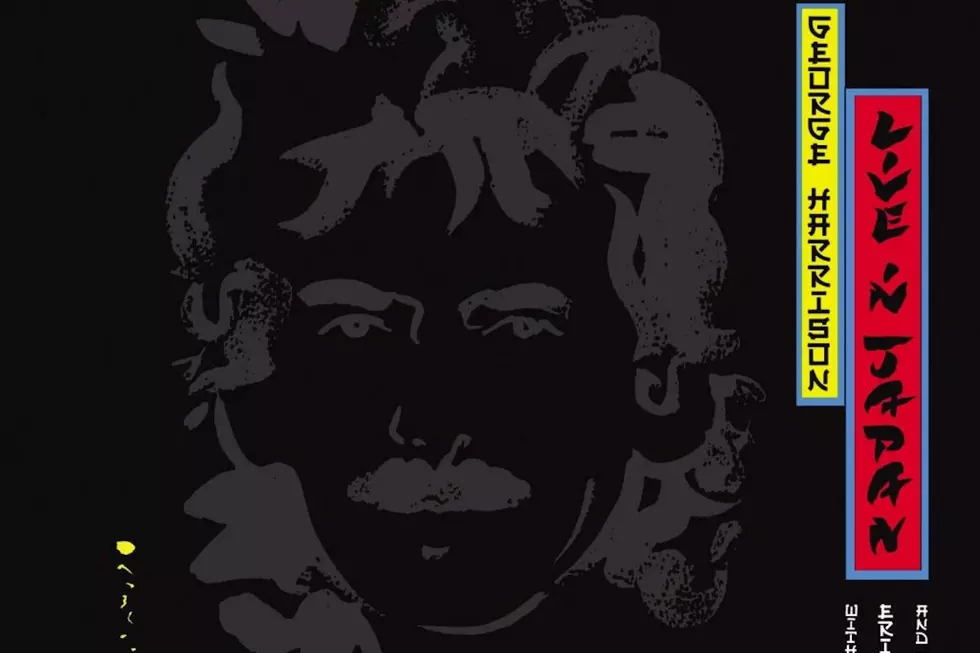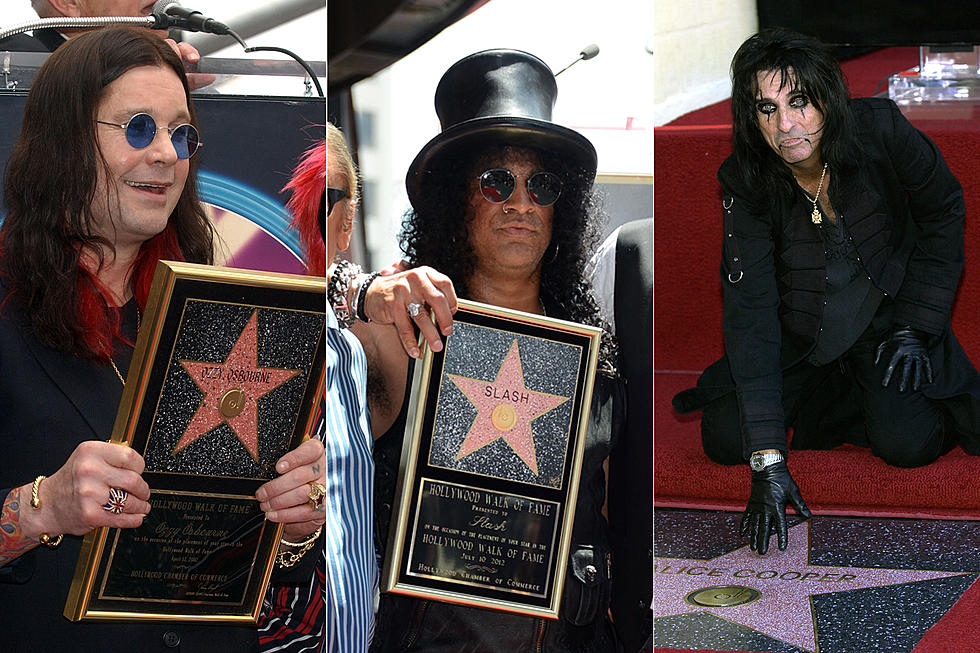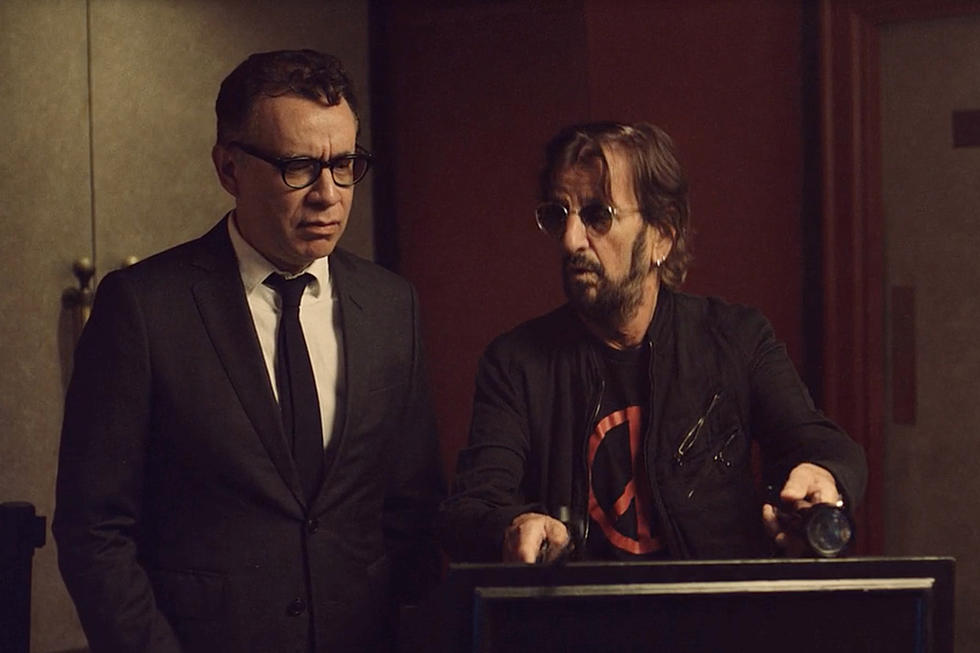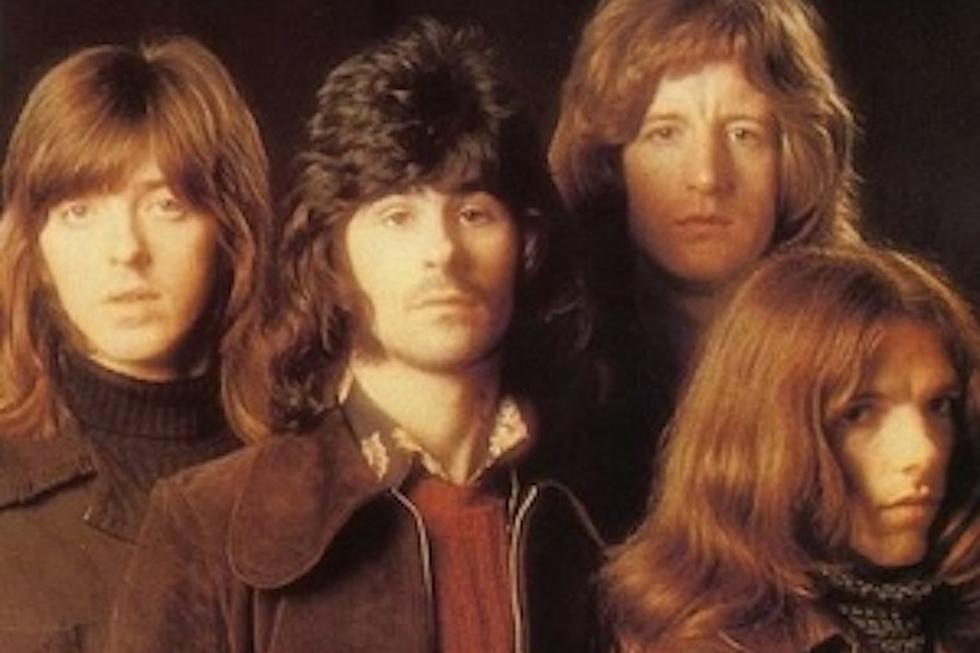
30 Years Ago: George Harrison’s ‘Live in Japan’ Celebrates a Brief Return
George Harrison's second concert recording arrived on July 13, 1992, with a career-spanning group of songs. Good thing, because Live in Japan would represent his final tour.
Eight of the double album's 19 songs delved back into his time with the Beatles, while the rest touched on every era of Harrison's solo career, from 1970's All Things Must Pass through late-'80s songs like "Cheer Down" off the Lethal Weapon 2 soundtrack.
"They were chosen by the fact that they were either a single, maybe a hit record, or it had some kind of feeling for me that it would be a good song," Harrison said during a Japanese news conference to discuss this incredibly rare tour. "Like the song 'Taxman,' regardless of if it's the '60s, '70s, '80s or '90s, there's always a taxman. The song seems to fit. And some I thought would be reminiscent also, like 'If I Needed Someone,' I sang at the Budokan 26 years ago."
Live in Japan gave touring partner Eric Clapton an opportunity to reimagine his original solo on "While My Guitar Gently Weeps." He also added a lyrical introduction to "Something." Together, both guitarists give a new bite to the title track from 1987's Cloud Nine and reshape "If I Needed Someone" from Byrds pastiche into a Tom Petty-like romp.
Among the concluding highlights is a ruminative exploration of "Isn't It a Pity" from All Things Must Pass. Harrison's guitar lines delicately intertwine with Clapton's, echoing an easy friendship. If this camaraderie tended to smooth out too many edges elsewhere on Live in Japan, it was also the only reason Harrison was emboldened to return to stages for the first time since a troubled tour back in 1974.
Listen to 'While My Guitar Gently Weeps' From 'Live in Japan'
"He's a great guitar player and maybe I'd be in competition with him if I'd have stayed on the road all those years, but my life went a different way," Harrison told the Chicago Tribune in 1992. "Sometimes I think I haven't toured for so long because I'm just basically lazy," he added with a laugh.
The readiness of Clapton's regular group, including future Heartbreakers drummer Steve Ferrone and longtime Rolling Stones keyboardist Chuck Leavell, also played a key role. "Eric suggested to me it would be a good time if I wanted to do a concert tour," Harrison said at the news conference, "because he was not working and him and his band were available to become my band."
They shared the spotlight for a total of 12 shows over December 1991 in Japan, though the original album made no mention of which concerts provided these recordings. The initial set list ballooned to 25 songs, but they quickly trimmed a couple, including "Love Comes to Everyone" from Harrison's 1979 self-titled album. Clapton was given a regular mid-set spotlight to perform some of his own music, highlighted by the Cream-era collaboration with Harrison on "Badge." None of those made the final track listing.
At the time, Live in Japan seemed to herald a new era for the typically reclusive Harrison, who openly ruminated about getting back to regular gigs. "I'm the kind of person who would love to play whenever I felt like, with a band, and it might as well be the Holiday Inn in Nebraska – somewhere where no one knows you and you're in a band situation just playing music," Harrison told the Tribune.
Unfortunately, it was not to be. In fact, Live in Japan was the last new album released in Harrison's lifetime.
The Best (and Worst) Song From Every George Harrison Album
You Think You Know the Beatles?
More From









